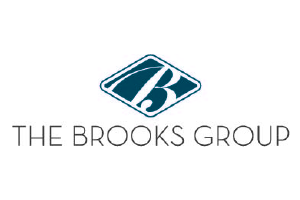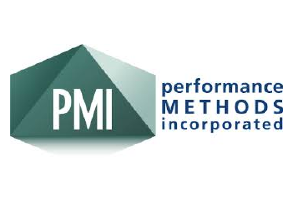Front-line sales managers hire reps and influence their training, guide rep action plans and ongoing execution from day one, provide (we hope) feedback to reps and so reinforce good selling behaviors, and are fundamental in the success or failure of sales-focused growth and change initiatives.
These managers have an outsized impact on performance, and the people who report to them recognize that. In a global study of more than 1,000 sales managers and sellers in industries ranging from medical devices and professional services to technology and pharmaceuticals, we found that top-performing sellers are 83% more likely to rate their managers as effective in helping them achieve their performance. The result is even more striking for sellers with less than five years of experience: With an effective manager, they were 240% more likely to be top performers compared to new sellers who did not. It pays to have good sales managers, but this begs some important questions: What does it mean to be a top-performing manager, and what do these managers do?
Defining Top Performance
Moving from “doer” to manager is difficult in any function. You move from being selected—typically for performance as an individual contributor — to being the new person at the low rung of the managerial hierarchy, who must learn the ropes. Sales managers must do this while learning about their people, judging diverse strengths and weaknesses, interacting with others in the organization, performing new administrative tasks, and hitting their numbers.
To identify top performers, we focused on criteria where sales managers have much influence:
- At least 75% of the sellers on their teams met annual sales goals. This is important because so many other resource-allocation decisions in companies depend upon sales forecasts and the ability of the team to meet forecasts. Conversely, in most businesses, production, service, and other assets get deployed in response to successful business development efforts — the organizational reality behind the old truism that “nothing happens until you make a sale.”
- Their teams achieved a win rate of more than 50% on proposed sales to prospects. This is a key marker of a cost-effective sales force. In most firms, the selling cycle is the single biggest driver of cash out and cash in.
- Their teams maintained premium pricing. Pricing is a moment of truth in business development, and in this research, sales managers are not considered top performers when their teams discount their way to win rates.
With these criteria, 18.7% of respondents qualified as top performers and the rest were 81.3% of the sample. To get a sense of the impact of differential performance, consider win rates. Sellers who reported to top-performing sales managers averaged a 72% win rate versus an overall average of 47%. Imagine a company with 200 sellers, each pursuing 25 opportunities annually (about 2 per month) with an average sale of $150,000. At a 47% win rate, annual revenue is $352 million; an increase to 57% means revenue is $427 million; and the top-performers’ win rate of 72% means $540 million. Short of a smash-hit new product, it’s hard to find improvements of that magnitude in other activities.
What Top-performing Sales Managers Do
The research analyzed 100 skills and behaviors across categories that are in most sales management job descriptions (see Figure 1). Top-performing managers’ success can be summarized in three words: rhythm, roles and conversations.
Figure 1

Rhythm
Top performers are 51% more likely, compared to other sales managers, to have a regular coaching cadence with the people who report to them. In turn, the coaching topics reflect that rep’s particular blend of strengths and weaknesses.
Many managers equate coaching with discussing results, which is a lagging indicator. They coach on an ad-hoc basis, focusing on problems after the fact, and switch from one topic to the next indiscriminately. This is disorienting for the receiver of feedback and violates a key learning principle: people get better at behavioral skills (versus learning new information) by identifying, in advance, specific areas of improvement and then practicing that skill with focused feedback. Top-performing managers are proactive, recognizing that a cadence of ongoing follow-up about an issue is key to behavioral change.
There is also evidence that the top performers are qualitatively better coaches. For example, all managers in the sample provided deal coaching at statistically similar frequencies, but top-performing sellers are 63% more likely to report that their manager excels at deal coaching that yields wins.
Smart leaders recognize this impact and develop managers’ coaching skills. David Coventry, vice president at Optus, an Australian leader in telecom products and services, says, “We identified that to make a meaningful change, we needed to focus at the sales manager level. Our approach was founded on supporting sales managers with targeted coaching to help them prioritize activities which would have the greatest impact. They defined specific plans of action for their teams, gained commitment from sellers, and built a rigorous accountability system so everyone would stick with it. The results have been very encouraging. We achieved a 15% uplift over the previous year, and connections grew by over 20%.”
Roles
Core to the transition from salesperson to manager is a change in professional identity. Successful salespeople learn about their customers, products, tasks and how to take care of themselves. Top-performing managers learn to take care of others and assume responsibility for collective behaviors and results. They embrace their responsibilities in forecasting, territory planning and leading effectively. The research found top-performing managers are 52% more likely to excel at territory planning and organizing how sellers manage pipelines, and 42% more likely to lead meetings acknowledged by sellers to be valuable, not time taken away from prospecting or closing deals.
In other words, these managers actually manage. This may seem obvious but consider how much leadership advice boils down to “hire the best people.” Business development “strategy” in many firms is to hire historically top-performing sellers from other companies, pay them handsomely, and let them do their thing. But without good managers, the result is often disappointment and high turnover. Talent matters, but so much of sales effectiveness depends upon executing the tasks in a given firm’s strategy and building the internal relationships, as well as external selling skills, required to do that.
Top-performing managers accelerate this necessary socialization process. Return on talent doesn’t happen with a job offer’s acceptance. It’s about building and allocating talent, and effective sales managers do that via territory assignments, forecasting and other levers inherent in their roles.
Conversations
In any organization, influence is bestowed as well as earned. It requires expertise and results, but also being recognized by others as adding value. Sales managers are no exception to the rule. Top-performing managers made their numbers, but so did others. The difference was that the top performers were seen as effective in the eyes of their sellers who valued the conversations with those managers. As a result, the research found, top-performing sellers were significantly more likely to dedicate more of their time to being coached each week.
People are not mind readers. It’s through conversations that managers build trust and help sellers take the right actions, learn and improve. Top-performing sales managers are statistically more likely to excel at leading discussions with sellers about identifying opportunities, growing accounts, managing customer interactions and increasing pipeline. These conversations help sellers build skills, drive results and stay focused and motivated. Sellers rated the top-performing managers as 71% more effective at motivation, an effect derived largely through the quality of their collective conversations.
Importance of Interaction
It would be a mistake to read this research as implying that top-performing managers are somehow renaissance people, excelling equally at all of the activities outlined on Figure 1. Life inside any sales organization is filled with deadlines, periodic crises, pressures to perform and dozens of decisions that must be made in market time. Hence, most sales managers get pulled in multiple directions, focusing on coaching one month, a new training initiative the next and a motivational speech in the next quarter. These are all good things to do but, without a template for effectiveness, the usual result is managers who are global mediocrities (i.e., reasonably adept at many things, but not very good at the subset of things that really matter in their context).
In business, there is no such thing as performance in the abstract; there’s only performance in this company, executing this strategy, in these market conditions. Top-performing managers prioritize the activities in Figure 1 most relevant to their conditions and people, and then adopt a systemic approach to those priorities, recognizing that their coaching and management roles work in concert.
For example, across industries, key drivers of managers’ effectiveness, according to sellers, are: valuable coaching, hiring, motivating sellers, and territory/pipeline management. Good forecasting and territory planning align with strategic objectives, and coaching develops behaviors that drive forecasted results. In turn, this makes reps more receptive to the manager’s coaching and training initiatives and sets up a virtuous cycle: those managers acquire a reputation as good to work for (because their reps succeed) and become talent magnets, attracting reps with skills and coachable personalities.
It’s reminiscent of the comment that has been attributed to Andrew Carnegie when he was asked, “Which element is most important for business success: brains, capital, or labor?” His reply: “Which leg of a three-legged stool is most important?” It’s the fit of rhythm, roles, and conversations that drives sales productivity and top-performing sales managers.










